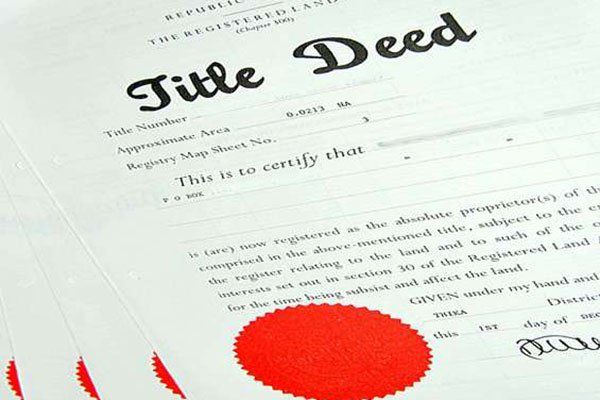When purchasing land or property, one of the most important considerations is how ownership will be registered. In Kenya, a title deed is the legal document that proves ownership of a piece of land — and it can bear the names of one or more individuals or entities. Understanding how many people can be listed on a single title deed helps avoid future disputes and ensures smooth property management.
1. Individual Ownership
This is the simplest and most common form of ownership. The land is registered in the name of one person, who holds full control and responsibility over it. This option is ideal when the buyer is purchasing the land solely or intends to make independent decisions about it.
2. Joint Ownership
Joint ownership allows two or more people to share ownership of a property. This can be done under joint tenancy or tenancy in common.
-
Joint Tenancy: All parties have equal rights to the land, and in the event one owner passes away, their share automatically transfers to the surviving owner(s).
-
Tenancy in Common: Each person owns a specific share, which can be unequal, and can transfer or will their share independently.
This type of ownership is common among spouses, business partners, or family members investing together.
3. Group or Company Ownership
A title deed can also be registered under a company, group, or cooperative society. In this case, the entity itself holds the ownership, and internal agreements define how members or directors share interests and responsibilities. This option is suitable for investment groups, SACCOs, or real estate developers.
4. Recommended Number of Owners
While the law does not specify a maximum number of people that can appear on a title deed, it is generally advisable to limit the number to no more than four. Having too many names can complicate transactions such as selling, subdividing, or transferring ownership since all parties must consent. For investment groups with many members, registering the land under a company or trust is often the most practical solution.
5. Legal Guidance
Before deciding how to register your property, it’s important to consult with a lawyer or land expert. Proper documentation and clear agreements protect all parties and ensure your investment remains secure for the future.
In Summary:
A title deed can include one or several names, depending on the ownership structure. The key is to choose an arrangement that balances flexibility, security, and ease of management. At Think Real Estate, we help our clients understand every step of the ownership process — from purchase to title registration — ensuring your investment journey is transparent and worry-free.







